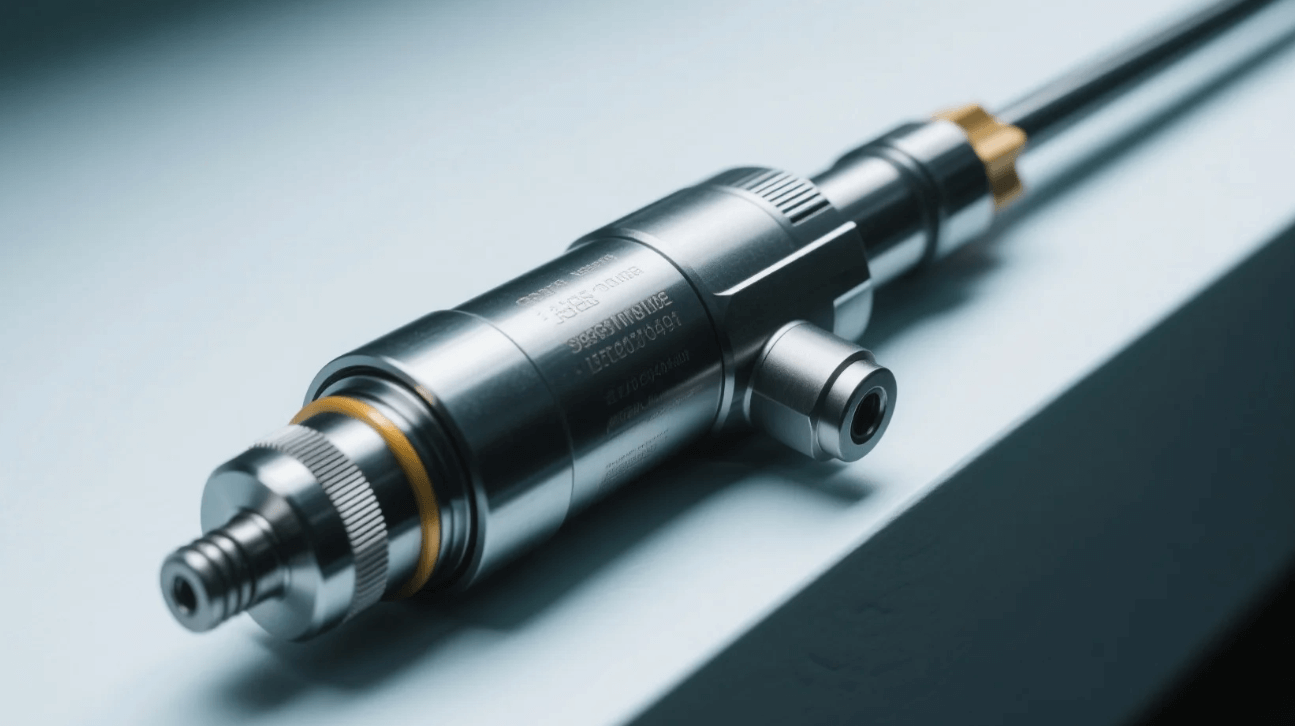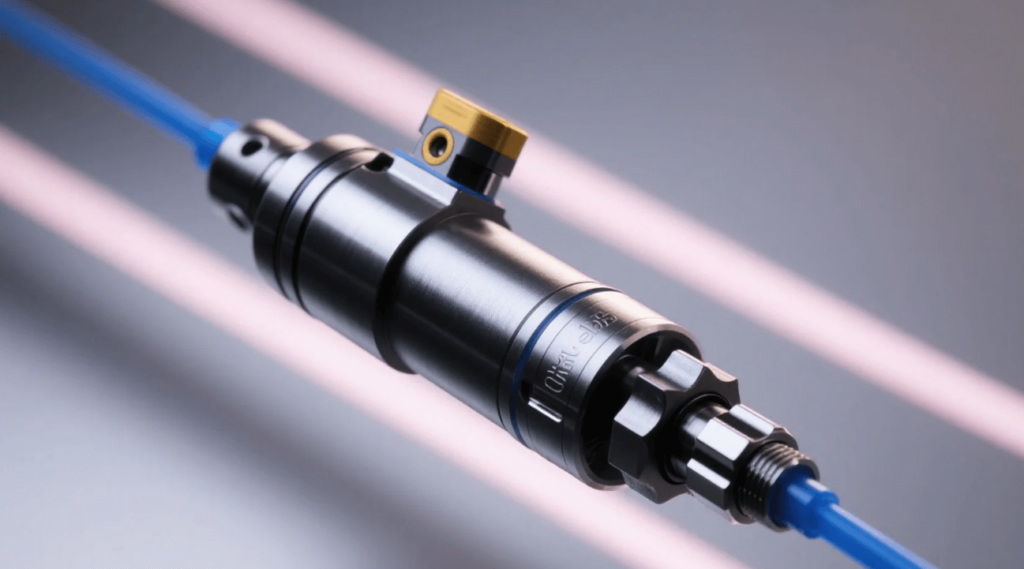
Introduction
The 095000‑5050 diesel injector (cross-referenced as RE516540, RE519730, RE507860, SE501924) plays a pivotal role in John Deere PowerTech Tier 3 engines (4.5 L & 6.8 L). In this article, you’ll discover what makes it special, how it functions, where it’s used, and why proper selection, installation, and maintenance are crucial. Offering clear value for parts professionals and equipment owners, this guide ensures technical accuracy with a friendly tone.
What Is the 095000‑5050 Injector?
Identification & Genesis
- Equivalent OEM numbers: 095000‑5050, 095000‑5051, 095000‑5052, and more, matching injectors like RE516540, RE519730, RE507860, SE501924.
- Designed for Denso-built common-rail systems, widely used in Tier 3 emissions-compliant engines.
Core Specifications
- High-pressure common-rail diesel injector tailored for precise metering in John Deere 4045H (4.5 L) and 6068H (6.8 L) engines .
- Built with premium steel and control components, it allows repeatable fuel atomization under high pressure.

Key Features & Value
Precise Fuel Delivery
The 095000‑5050 injector ensures accurate fuel metering and fine atomization, which leads to more efficient combustion, higher torque, reduced emissions, and smoother engine performance.
OEM-Level Reliability
Remanufactured or new injectors are tested to meet OEM performance standards. Many suppliers back them with 6–12 month warranties, offering both quality and peace of mind .
Direct Fit & Installation Ease
This injector is a direct replacement for John Deere Tier 3 engines. It fits seamlessly without modifications, saving time and reducing the risk of errors during retrofit.
Fuel & Cost Efficiency
By optimizing spray patterns and combustion, fuel economy can improve by up to 5–8%, while service life extends beyond 10,000 operating hours under good care.
Engine Applications & Use Cases
John Deere 4045H (4.5 L)
These engines power mid-tier construction and agricultural equipment. The 095000‑5050 injector restores stable idle, quicker response, and cleaner emissions.
John Deere 6068H (6.8 L)
Found in heavy tractors, loaders, and excavators, this 6.8 L engine demands durable injectors. The 095000‑5050 sustains high performance under load.
Beyond John Deere
Some commercial Denso-equipped engines from manufacturers like Case, New Holland, and Volvo use compatible injector designs, though fitment must be confirmed.
Selecting the Right Injector
OEM vs Reman vs Aftermarket
- OEM (Denso): Highest consistency, best durability, higher cost.
- Remanufactured (e.g., Alliant Power AP52900): OEM parts replaced/tested—solid compromise.
- Aftermarket (e.g., CMPC/SINOCMP or ERIKC): Price-friendly but quality varies—choose suppliers with documented testing and warranty.
Price Range
- Budget aftermarket injectors: US $150–200 each.
- Remanufactured OEM-grade: US $470–580 per Alliant Power listing.
- New OEM units may exceed US $600, depending on dealer.
Warranty & Support
Look for injectors with at least 6 months warranty. Reputable suppliers like Alliant Power provide 45-day core return policies—indicating confidence in product reliability .
Installation & Post‑Installation Process
Pre‑Installation Checks
- Confirm that the injector bears 095000‑5050 or equivalent OEM markings.
- Inspect O-rings and sealing surfaces; replace any worn parts.
Injection Coding
Post-installation, injector coding or “trim code programming” is mandatory. This aligns fuel delivery with the engine control unit to ensure even performance across cylinders.
Break‑In & Testing
After fitting, a gradual break-in is recommended: run the engine at varying RPMs for about 2 hours, monitor for irregular idle, smoke, or fault codes, and verify performance via a diagnostic scanner.
Maintenance & Troubleshooting
Preventive Measures
- Use high-grade diesel and replace filters every 10,000 hours or per OEM guidance.
- Keep engine oil clean; change based on usage intensity.
Recognizing Injector Issues
Beware of:
- Hard starts and rough idle
- White/black smoke or loss of power
- Fuel smell or increased fuel consumption
These indicate possible injector wear or clogging, which require cleaning or replacement.
Single Injector Replacement
If only one injector fails, test it thoroughly and aim to match performance levels of others. Mismatched injectors can lead to cylinder imbalance.
Cost–Benefit & ROI Analysis
Efficiency Gains
Precise injectors like 095000‑5050 reduce fuel consumption by up to 8%, saving significant operational costs over time.
Emissions Compliance
Clean combustion enhances particulate reduction and helps engines meet Tier 3 standards, important for regulatory compliance and environmental impact.
Engine Longevity
Uniform cylinder performance reduces stress on engine components, potentially extending main bearing and cylinder head lifespan by thousands of hours.
FAQs
Q1: Will 095000‑5050 fit my Tier 3 John Deere engine?
A: Yes—it’s a direct OEM spec replacement for 4045H (4.5 L) and 6068H (6.8 L) Tier 3 PowerTech models. Confirm matching part numbers before purchase.
Q2: OEM vs remanufactured—what’s better?
A: OEM offers maximum reliability. Reman injectors (like Alliant Power AP52900) offer OEM-quality at lower cost. Choose aftermarket only if backed by performance tests and warranty.
Q3: Is coding necessary after replacement?
A: Absolutely—injector coding ensures ECU compatibility and balanced cylinder output.
Q4: Can I replace just one injector?
A: Yes, but to avoid imbalance, ensure the replacement matches the trim and performance of existing units.
Q5: How often should injectors be serviced?
A: Under typical conditions, inspect and test every 5,000–8,000 operating hours or when performance anomalies appear.
Conclusion
The 095000‑5050 injector stands out as a smart, reliable component for John Deere PowerTech Tier 3 engines, offering precise fuel atomization, improved efficiency, and regulatory compliance. Whether choosing OEM, remanufactured, or carefully vetted aftermarket units, success hinges on proper selection, correct installation (with coding), and regular maintenance. This deeper insight aims to guide operators and technicians toward informed decisions, saving time, money, and enhancing engine longevity.



